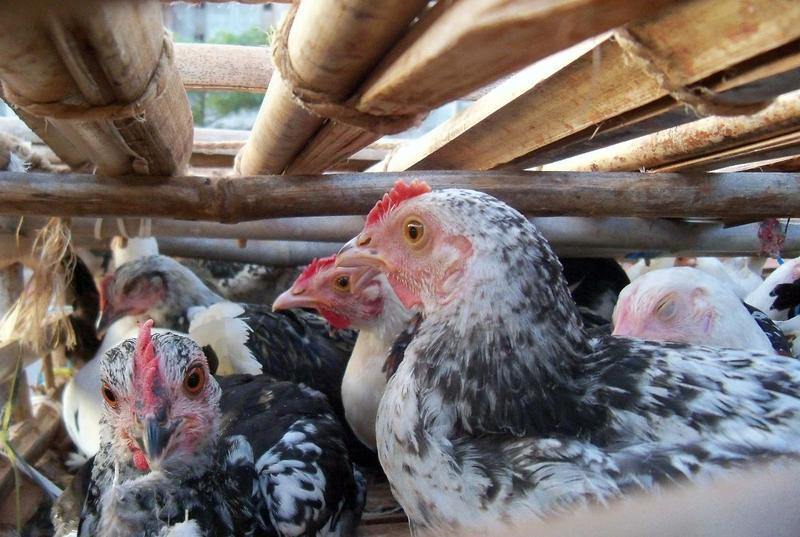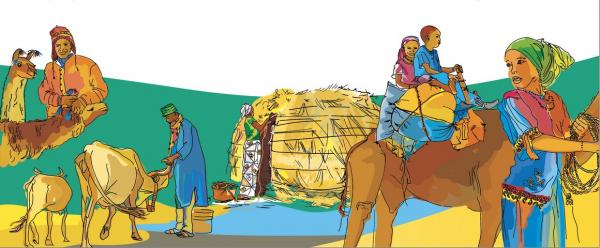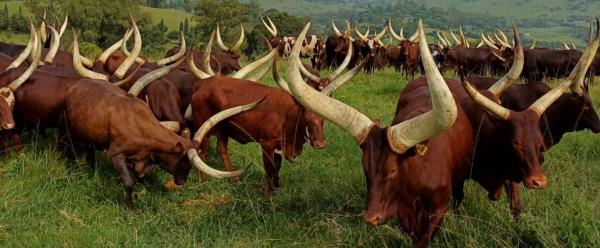Institutional news 4 February 2026
- Home
- CIRAD news
- News
- Le Monde op-ed institutionalizing the “One Health” concept to prevent epidemics
Op-ed | The “One Health” concept must be institutionalized to prevent new epidemics on a global scale

© S. Molia, CIRAD
In humans, 75% of emerging infectious diseases are of animal origin. But what do we know about outbreaks of new diseases such as COVID-19, and about the imbalances they cause? What are we doing to understand, anticipate and manage these outbreaks? To achieve this, we are convinced of the need to mobilize the “One Health” concept and to integrate human, animal, plant and environmental health at all levels and in all dimensions, including the political level.
This approach now needs to be institutionalized in order to drive a real shift in the governance of health. At the level of a living being, a simple imbalance in microbial flora can cause a disease, or prevent the organism from fighting a pathogen.
At the level of a territory or an ecosystem, climate, agricultural practices and any other socio-economic factor can disrupt the interactions and balances between microbes (viruses, bacteria, parasites), the arthropod vectors that can transmit them (mosquitoes, ticks, etc.), natural reservoirs (animals that can host pathogens without necessarily falling ill, such as bats) and hosts (domestic and wild animals, and humans).
A new approach to health management at the global level
Deforestation with a view to developing industrial export agriculture, wildlife trafficking and the associated biodiversity loss are emblematic examples of imbalances that can foster contacts between new pathogens and humans, resulting in the emergence of diseases, such as Ebola.
A disease outbreak is always a local event at first, but human activities can cause it to spread all over the world, as seen with the COVID-19 crisis. Rapidly detecting diseases in humans, but also in animals, acting quickly at the local level and alerting at the global level are all levers to ensure outbreaks do not become pandemics.
Anticipating, monitoring, acting, communicating, reacting and, in periods of calm, co-constructing a resilient socio-ecosystem that does not foster outbreaks and prevents the spread of pathogens; this must now become a shared goal for a new approach to health management at the territorial, country and global levels.
Tried and tested One Health initiatives
Regional health networks in the Caribbean (CaribVET) and the Indian Ocean (One Health OI), associating researchers, veterinarians, doctors and policy makers from the different countries and regional and international organizations, contributed to preventing the introduction of avian influenza in the Caribbean in 2016, and to controlling outbreaks of foot-and-mouth disease and Rift Valley Fever in the Indian Ocean area in 2019.
Innovative networks and tools to predict and detect outbreaks that meet the needs of health managers are currently being developed thanks to European projects such as the MOOD project or the One Health European Joint Programme.
In France, the creation of national platforms for epidemiological surveillance in animal health, plant health and food chain safety has brought together public and private actors working in epidemiological surveillance.
Going beyond these few “success stories” for integrated health management at the national or regional levels, the One Health concept now needs to be institutionalized to ensure it is implemented and sustained at the global level.
A "One Health" High-Level Council
With regard to international governance, the World Health Organization (WHO), the Food and Agriculture Organization of the United Nations (FAO) and the World Organization for Animal Health (OIE) signed a tripartite declaration on integrated approaches to health back in 2010. But these organizations are struggling to include issues of environmental health and biodiversity loss.
Several researchers from CIRAD, as well as members of the French Veterinary Academy, recommended that the United Nations Environment Programme (UNEP) join WHO, FAO and OIE in the One Health global approach. This idea is taking root, since on 27 September 2020, 60 leaders undertook to adopt these approaches, in the framework of a broader commitment on climate and biodiversity. In addition, on 29 October 2020, the Intergovernmental Science-Policy Platform on Biodiversity and Ecosystem Services (IPBES) published a report on the pandemic along those lines.
To ensure the approach becomes truly operational, we propose going even further, with the creation of an international high-level council for health, based on the One Health approach. This “One Health” High-Level Council would bring together all of the actors needed to understand and to help to manage disease outbreaks: scientists from all disciplines (microbiology, epidemiology, entomology, ecology, sociology, anthropology, etc.) and all sectors (human, animal, plant and environmental health), as well as representatives of international organizations (WHO, OIE, FAO, UNEP, IPBES, etc.) and of civil society, in a multidisciplinary, interdisciplinary and intersectoral approach.
The goal of this council would be to support the international organizations concerned and states in the co-production of recommendations for health policies in order to ensure better anticipation, surveillance, prevention, early action and reaction in the face of disease outbreaks. It would give special attention to supporting the most vulnerable countries, since the One Health approach must also contribute to international solidarity.



























